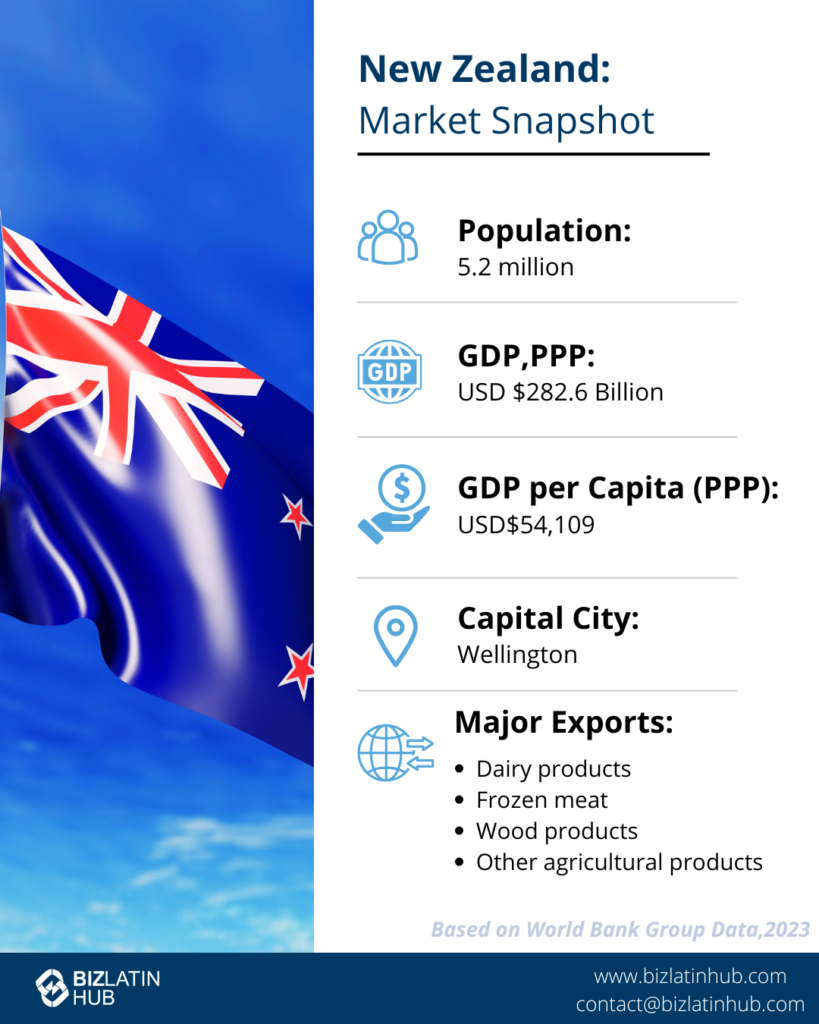New Zealand’s workforce and business climate are productive and diverse. Despite its size and relative isolation, the business-focused government nurtures several economic gifts: it’s top in the world for ease of doing business, according to the World Bank’s Doing Business Report, and has the third freest economy as per the Heritage Foundation’s 2023 Index of Economic Freedom.
Its multicultural universities and humming urban centres foster highly educated workforce and research capabilities. Like many countries worldwide, the challenge of adapting technology is the next big hurdle for transforming business. We explore how creative and innovative technology is surfacing in the South Pacific island nation.
Exploring the Synergy of Innovation, Technology, and Creativity in New Zealand: Drivers of Business Transformation
Technology offers practical means to achieve new objectives for people and businesses, pushed beyond conventional boundaries by creative thinking.
How do you define the point of intersection between innovation, technology and creativity?

Technology offers practical means to achieve new objectives for people and businesses, pushed beyond conventional boundaries by creative thinking.
Where these three concepts meet each other is where we see transformation of convention, and opportunities for progress. Technology offers practical means to solve problems and inefficiencies for people and businesses. These advances are pushed beyond conventional boundaries by creative thinking.
New Zealand is considered unique in its approach to change in these areas. Sarah Peterson, listed in the 2016 Forbes ’30 Under 30’ list in Consumer Technology, identifies strong cultural connection, government investment, receptiveness to improvisation and loose hierarchical structures as just some elements empowering innovation in New Zealand.
Bridging Digital Inclusion and Innovative Thinking: Strategies for Empowering New Zealand’s Digital Future
The New Zealand government’s Digital Inclusion Blueprint aims to deliver to New Zealanders the tools they need “to participate in, contribute to, and benefit from the digital world.”
Improved digital literacy is something the country is striving for, as outlined in the New Zealand Government’s Digital Inclusion Blueprint, suggesting that New Zealand does not yet consider itself a frontrunner in terms of digital innovation. Indeed, various ICT, electronics, and telecommunications roles are listed on the country’s long-term skill shortages list. Businesses looking to bridge these gaps and access global talent efficiently can benefit from leveraging PEO and Hiring services to streamline recruitment and compliance..
This is not to say that New Zealanders aren’t innovative thinkers; their world-renowned reputation for ‘number 8 wire’ ingenuity hints at a national propensity for finding creative solutions. The country is however acutely aware that in order to progress and commercialize innovative ideas, it needs to attract investment and foreign entrepreneurs to boost its technological innovation capabilities. Innovative concepts must be drawn out of meeting individuals’ needs and considered for their market viability on a regional, national or international scale.
Revolutionizing Industries with Automation: Unleashing New Zealand’s Productivity Potential
Automation is pervasive; it assists businesses in every industry to find more efficient ways of completing tasks through machines, reduce human error and increase productivity.

Robotic process automation (RPA) is on the horizon for New Zealand business. It’s an intriguing next step for an already highly productive country. As RPA moves through industries on the technological innovation wave, the challenge for executives and decision-makers is to identify where robotics can fit into their operations. Taking advantage of the support RPA can bring to a business requires an ‘automation-first’ mindset, according to Managing Director of UiPath, Andrew Phillips.
“RPA can uncover new opportunities for businesses to gain a competitive advantage but also reach their goals more efficiently. It’s therefore important that ANZ businesses are prepared for this shift in how we combine humans and robots at work.”
Robotics Plus is a New Zealand robotics and automation company that hones in on opportunities for tech in New Zealand’s booming agriculture industry. Using imaging software and AI, Robotics Plus invented a robotic arm that identifies and picks kiwifruit from trees. In 2018, the company signed an agreement with Global Pac Technologies for the global distribution of its similarly-designed apple packers, as reported in industry updates by Robotics Plus.
Demand for robotics plus is growing, supporting the expansion of companies like Robotics Plus beyond traditional trading partners such as Australia and the US. Accelerated growth is an assured benefit of moving into the technological automation industry.
Enhancing Customer Experience with Value-Added Technology: The New Zealand Perspective
Consumers have come to expect fast and effective customer service, by way of simplified checkouts and other easy online transacting.
New Zealand businesses – in areas such as retail and finance – are moving to apply technology to enhance customer experience. Undoubtedly, great quality customer service aids sustained business growth.

It’s no surprise then that Air New Zealand, voted New Zealand’s most respected brand for 5 consecutive years, has a strong digital focus underpinning their user interface. Marie Hosking, Air New Zealand’s Head of Communications, explains that key to the airline’s user experience is “maintaining an unwavering focus on customer experience, [and] continuing to invest in products and services.”
Among Air New Zealand’s clutch of digitally enhanced services are:
- A wristband for children who are traveling alone, that allows guardians to monitor their child’s journey
- A mobile app for checking in, upgrading services, electronic boarding passes and even ordering coffee for customers using the airline’s airport lounges
- A hands-free interactive app named ‘Alexa’ that can check airpoints balances, flight times and delays
- An artificial intelligence chatbot.
Air New Zealand demonstrates the potential for and rewards of implementing value-add technology to business to boost user experience.
Artificial Intelligence in New Zealand: Opportunities, Challenges, and Economic Impacts
How does artificial intelligence (AI) fit into New Zealand’s business environment? The good news for investors is that AI is moving slowly through the local commercial landscape, giving experts marked opportunities to move into the market.
New Zealand’s technological ecosystem is looking for AI support. Thus, a newly founded AI Forum (2017) aims to bring together innovators, researchers, entrepreneurs and end users to bring AI to the forefront of the country’s tech developments. A recent survey revealed According to a survey conducted by IT Brief in 2024, 67% of New Zealand organisations view AI as a positive enabler to their work, and 88% have integrated AI within the past two years.
AI could add $76 billion to New Zealand’s economy by 2038, according to a report by Microsoft New Zealand. Workers are expected to save 275 hours per year through AI adoption, while 24% of tasks could be augmented by AI and 14% could be automated. However, only 13% of businesses have audit assurance and governance frameworks for AI.
According to the same survey, AI in New Zealand is mostly being explored via the use of chatbots. There is therefore a lot of uncovered ground in machine learning services that foreign investors can introduce into New Zealand.
Fostering Creativity and Design Excellence in New Zealand: From Entertainment to Digital Innovation
New Zealand has an abundance of creative thinkers who reveal themselves in thriving entertainment (film, television and music), media, fashion and arts businesses.

The country’s screen industry – making its arguably most famous mark on the world with Peter Jackson’s Lord of the Rings Trilogy – is another significant revenue generator for the economy. Weta Workshop, Oktober Animation, South Pacific Television and NHNZ are all national (and some even international) trailblazers in screen productions and techniques.
Game development and digital content creation are also strengths in the nation’s repertoire. New Zealand’s Media Design School and other institutions foster innovative thinkers who continue to contribute to the creative industries.
Strengthening Digital Infrastructure: New Zealand’s Path to Connectivity and Technological Leadership
The New Zealand government has prioritized strengthening its digital infrastructure. The internet penetration rate now stands at 95.7%, with plans to achieve 100% cell coverage by late 2024 through a partnership between Space-X and One New Zealand, as detailed in the Trade New Zealand Digital Economy Report. In addition, the Lynk and 2degrees technology trial aims to enhance connectivity in remote areas. New Zealand has also invested NZ$20 million into a supercomputer to bolster technological development, while the upcoming Honomoana cable, set to connect with Google and Vocus in 2026, promises to enhance international connectivity.
Prioritizing Cybersecurity in New Zealand: Addressing Digital Threats and Building Trust
Cybersecurity is a growing concern for New Zealand. TUANZ has identified it as a top priority for 2024. Stronger digital security measures are necessary as only 13% of businesses currently have proper audit assurance and governance frameworks for AI. Organizations must address these vulnerabilities to ensure a secure technological environment.
Building Digital Skills and Training in New Zealand: Overcoming Barriers to AI Adoption
A lack of AI expertise is a significant barrier to adoption, affecting 43% of non-adopting organizations. Only 48% have staff policies for AI, and just 33% provide awareness training. Many employees engage in a “BYO AI” practice, where uncoordinated AI tools are used without formal integration into business systems. This highlights the pressing need for structured digital skills development and training programs.
Economic Indicators of New Zealand: Challenges in Growth and Technological Readiness
Despite its achievements, New Zealand’s economy faces challenges. The country experienced a 0.2% GDP contraction in Q2 2024, according to Trading Economics. Additionally, New Zealand has dropped from 19th to 23rd position in the Portulans Network Readiness Index, signaling room for improvement in technological infrastructure and readiness.
Innovation and Compliance: Opportunities in New Zealand’s Evolving Economy
New Zealand’s commitment to innovation, digital inclusion, and creative solutions makes it an attractive hub for global investors and businesses. With advancements in automation and AI, combined with a strong cultural foundation for creativity, the country is poised for significant growth. However, challenges such as skill shortages, cybersecurity gaps, and the need for better governance frameworks highlight the importance of expert support. Partnering with specialists like Biz Latin Hub ensures your business can navigate these complexities with confidence, ensuring compliance, streamlined operations, and successful market integration. Contact Biz Latin Hub today to learn how our expertise can help your business thrive in New Zealand’s dynamic economy.






